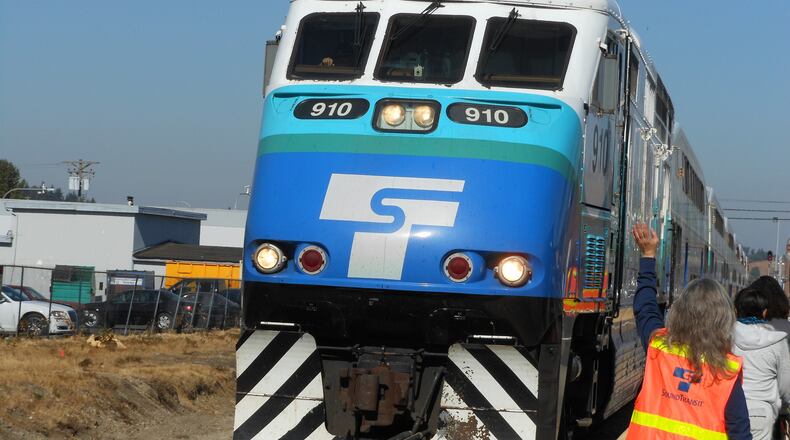MARTA officials say Clayton County needs an economic development strategy around transit if it wants to help lure federal dollars to make the south metro community’s ambitions for commuter rail a reality.
Federal grants that may be key to getting the millions of dollars it will take to bring rail to Clayton require communities to demonstrate that they have a plan to develop a critical mass of residential and commercial buildings around commuter stops, MARTA Assistant General Manager Ben Limmer says.
“This is an area where our collective ability to pursue a federal grant really comes down to local jurisdictions and their planning activities along the individual transit routes,” Limmer told the Clayton County Commission recently.
VIDEO: Previous coverage of this issue
MARTA's directive comes as its Board of Directors earlier this month approved a 22-mile commuter train service that would link Clayton to the rest of the system. The line would begin at the transit agency's East Point station and run south to Lovejoy.
MARTA, which pegs the cost of the project at $25 million to $50 million per mile, is negotiating with Norfolk Southern to use existing tracks for the project or to build ones on the railroad’s right of way, Limmer said. Construction could start in 2023 with the trains ready to use in 2027.
The need for a coherent development plan that would work in concert with MARTA poses one of the south metro county’s biggest challenges in its dream of changing its economic future. Clayton, which over the years has struggled to jump start its economic development, is hoping that rail can be a magnet for commercial and residential development in the county in the same way it has been for stations at Lindbergh in Atlanta or Dunwoody in DeKalb County.
But recent squabbles between the commission and the county's development authority — most recently over an updated land use plan — has raised doubts on whether Clayton leaders can put aside their differences to support MARTA's call.
Limmer said MARTA has been "at the table" in some of Clayton's land use discussions and is planning an economic workshop in January to discuss transit- supportive policies, including municipal codes and their impact on development standards.
Clayton Commissioner Felicia Franklin Warner warned her colleagues that they needed to step up their game. Warner, who attended a recent transit conference in Atlanta, said competitors who want the same transit dollars are speaking with a unified voice.
“In the areas that are able to get that federal funding … they are collectively planning together,” she said.
About the Author
Keep Reading
The Latest
Featured



